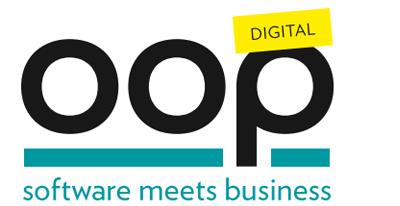- Deutsch
- Contact
- Newsletter

Conference Program
Please note:
On this site, there is only displayed the English speaking sessions of the OOP 2022 Digital. You can find all conference sessions, including the German speaking ones, here.
The times given in the conference program of OOP 2022 Digital correspond to Central European Time (CET).
By clicking on "EVENT MERKEN" within the lecture descriptions you can arrange your own schedule. You can view your schedule at any time using the icon in the upper right corner.
Track: Trends & Techniques
- Dienstag
01.02. - Mittwoch
02.02. - Donnerstag
03.02.
While Rust is typically pitched as systems programming language, it is equally adept at application development thanks to its high level features and great tooling. In addition to increased performance, native code has the advantage that it can easily be reused across different system components, an advantage even more pronounced in polyglot environments. In this talk, we would like to present our experience of using Rust to write core components in such a polyglot system.
Target Audience:…
In today’s software-driven world, the integrity of software assets isn’t just a regulatory and compliance requirement, it’s critical for maintaining trust and avoiding irreparable damage to your brand and reputation. We found that Compliance, Software Chain of custody and in-App Security as well as API Security are seen as an overburdened bureaucracy. But they have to be part of your software value stream. So the question is, how they can be so lean, automated and optimized that they can…
(Agile) Games are sounding throughout the land. Everyone plays games and anyone guides games. However, what makes playing games "interesting" from the business owner's perspective?
We look into the criteria of effectiveness and efficiency of games and thus the capabilities of creating business impact for the company.
As such, it turns out a game - is just a game and remains a play if one does not align with underlying business needs. Sounds familiar? But you wonder how to do so?
In this talk,…
So many challenges, so little time. As testers or quality engineers, we need to sharpen the saw, but how? Gamification can be a way to look at how you're doing and find out where to improve. It's a great way to have everyone engaged and get the best out of people.
In this presentation, Ben Linders will show how playing games (onsite or online) with the Agile Testing Coaching Cards and Agile Quality Coaching Cards help to explore your current quality and testing practice and decide as a team on…
If any person or groups of people feel unwelcome because of the language being used in a community, its products, or documentation, then the words should change. We can choose words that are precise, not dependent on metaphors, and convey messages without negative connotations.
We will discuss the process of auditing our own work and identifying divisive language. We will also talk about methods to standardize replacements and collaborate with writers and product developers to carry out these…
Each project has its own unique technology stack, different business logic and a unique team. The definition of quality in our projects can vary greatly. However, there are good practices that will work everywhere. There are steps that can be taken in every project and team to produce the software of better quality. I will tell you how to improve communication and processes, and what tools we can use not to be ashamed of the fruits of our work. Everything from a programmer's perspective.
Target…
“TDD is when you write tests before implementing the business logic” - a simple sentence that is also often misunderstood.
Moving from one project to another, I have observed how many times people were terrified of TDD. I have been there too.
This session will focus on trying to understand HOW and more importantly WHY you should consider TDD. I've transformed failures from my experience into a series of lessons learned, things that in hindsight should have been obvious.
Target Audience: Architects,…
When breaking up our software into modules we all too often forget the important social aspects; how the design affects the teams. We need modules that not only make us efficient but also harmonious.
We know that good fences make good neighbours, but only when the boundaries are placed correctly. We are going to take a closer look at why modularity is needed, what it actually can do for us, and how we can increase our chances of getting it right by taking a systems thinking approach.
Target…
